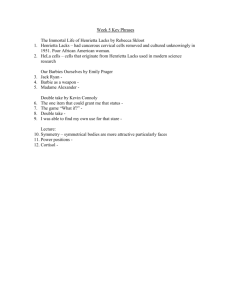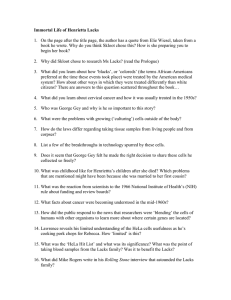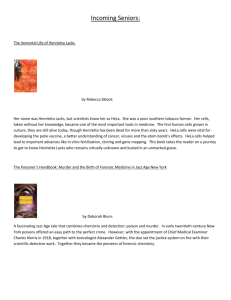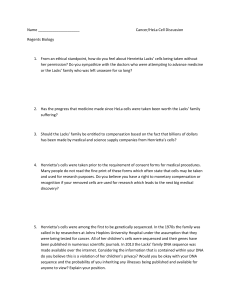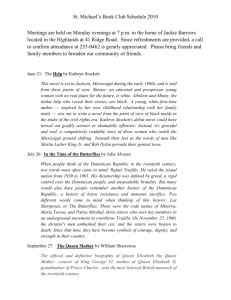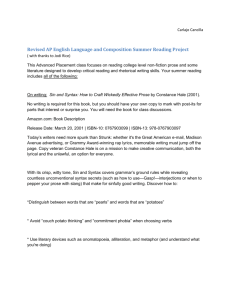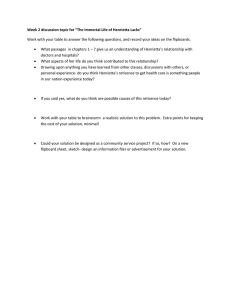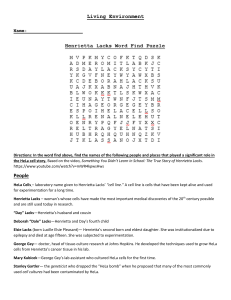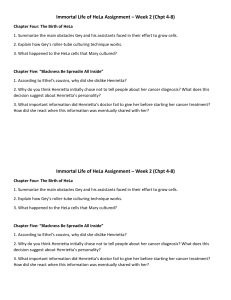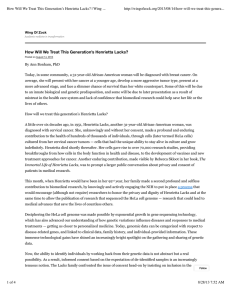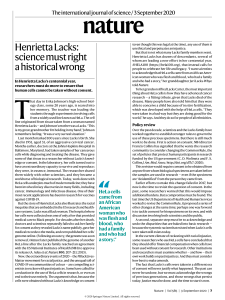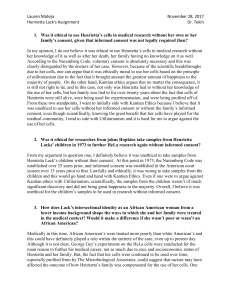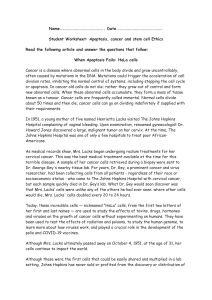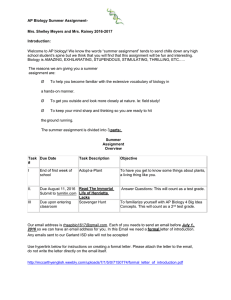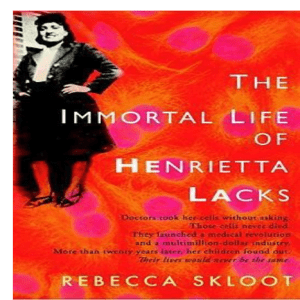Let us know how your discussions go! UW
advertisement
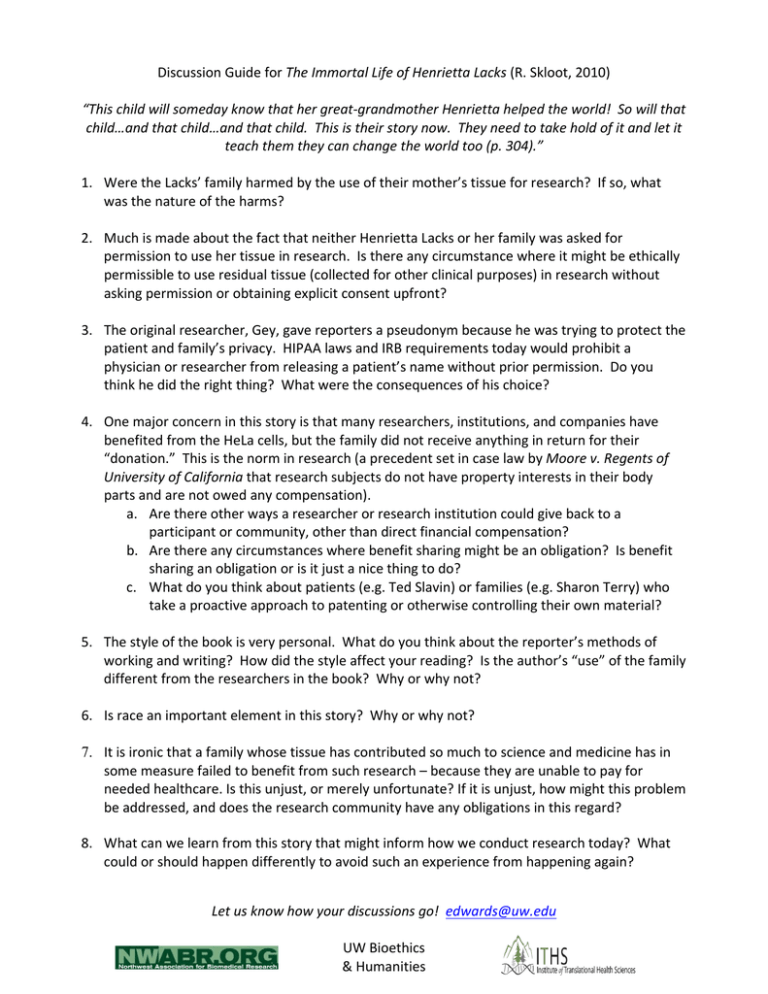
Discussion Guide for The Immortal Life of Henrietta Lacks (R. Skloot, 2010) “This child will someday know that her great‐grandmother Henrietta helped the world! So will that child…and that child…and that child. This is their story now. They need to take hold of it and let it teach them they can change the world too (p. 304).” 1. Were the Lacks’ family harmed by the use of their mother’s tissue for research? If so, what was the nature of the harms? 2. Much is made about the fact that neither Henrietta Lacks or her family was asked for permission to use her tissue in research. Is there any circumstance where it might be ethically permissible to use residual tissue (collected for other clinical purposes) in research without asking permission or obtaining explicit consent upfront? 3. The original researcher, Gey, gave reporters a pseudonym because he was trying to protect the patient and family’s privacy. HIPAA laws and IRB requirements today would prohibit a physician or researcher from releasing a patient’s name without prior permission. Do you think he did the right thing? What were the consequences of his choice? 4. One major concern in this story is that many researchers, institutions, and companies have benefited from the HeLa cells, but the family did not receive anything in return for their “donation.” This is the norm in research (a precedent set in case law by Moore v. Regents of University of California that research subjects do not have property interests in their body parts and are not owed any compensation). a. Are there other ways a researcher or research institution could give back to a participant or community, other than direct financial compensation? b. Are there any circumstances where benefit sharing might be an obligation? Is benefit sharing an obligation or is it just a nice thing to do? c. What do you think about patients (e.g. Ted Slavin) or families (e.g. Sharon Terry) who take a proactive approach to patenting or otherwise controlling their own material? 5. The style of the book is very personal. What do you think about the reporter’s methods of working and writing? How did the style affect your reading? Is the author’s “use” of the family different from the researchers in the book? Why or why not? 6. Is race an important element in this story? Why or why not? 7. It is ironic that a family whose tissue has contributed so much to science and medicine has in some measure failed to benefit from such research – because they are unable to pay for needed healthcare. Is this unjust, or merely unfortunate? If it is unjust, how might this problem be addressed, and does the research community have any obligations in this regard? 8. What can we learn from this story that might inform how we conduct research today? What could or should happen differently to avoid such an experience from happening again? Let us know how your discussions go! edwards@uw.edu UW Bioethics & Humanities
